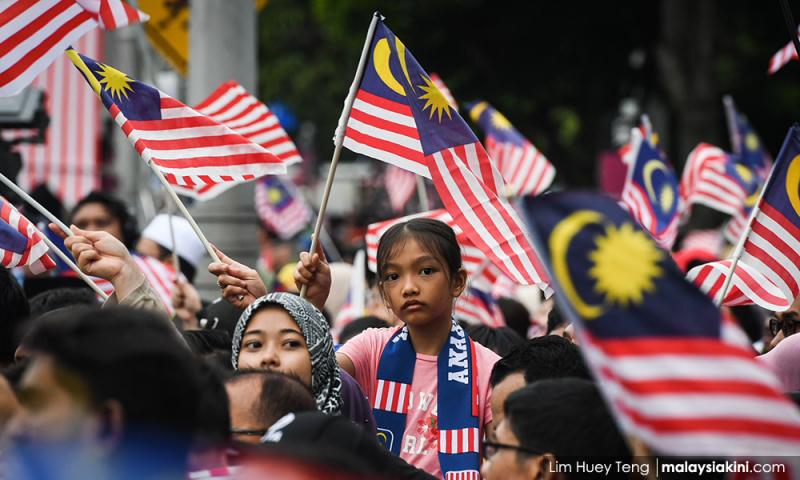Lowering the voting age: What’s next for M'sian youths?
ADUN SPEAKS | In this sitting, the Parliament is due to debate a constitutional amendment to lower the voting age from 21 to 18.
If the amendment passes, two questions arise.
The first is, how do we prepare the 14-year-olds of today to vote in GE15?
The Civics and Citizenship Education (CCE) subject is poised to make a comeback mid-2019, with new modules on anti-corruption and human rights, among others.
Hopefully, the new syllabus will balance between cognition, action and reflection.
Last year, I joined the Young Southeast Asian Leaders Initiative (YSEALI) programme that allowed me to visit the United States. In Boston, we visited the Edward M. Kennedy (EMK) Institute for the US Senate.
The institute is a non-profit dedicated to educating the public about Senate’s role in government and encouraging civic participation and dialogue through exhibits, activities and topical programmes.
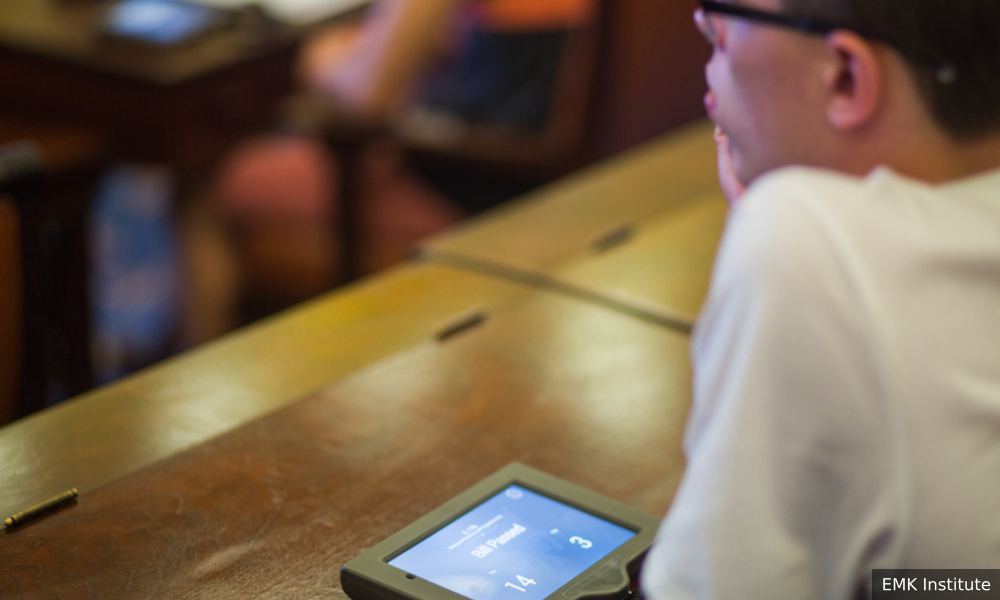
Using tablets, we followed the interactive exhibit called “How a Bill Becomes a Law”.
Visitors work together to negotiate and select ice cream sundae toppings (more fun than actual legislation!), vote on bills, override vetoes, and practise skills needed to guide legislation through Congress.
In the “Today’s Vote” programme, as “Senator for a day”, we could debate an active bill being considered by the real Senate in Washington DC. The session ended with a live vote.
The room in which “Today’s Vote” was conducted was a full-scale replica of the Senate, giving the exercise a real-life feel.
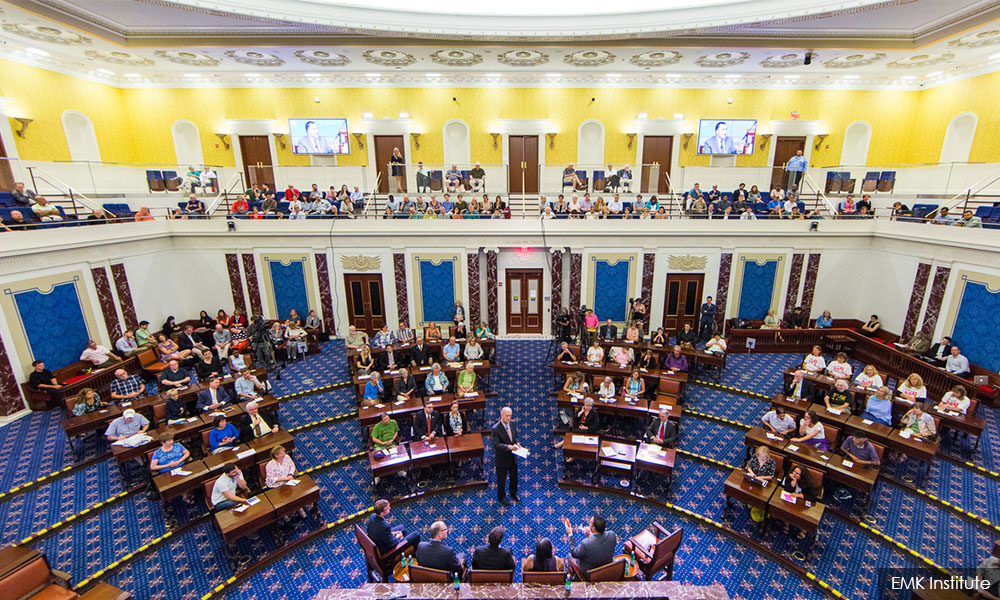
While the EMK Institute model requires some thought and investment, there are many ideas we can adapt to prepare Malaysian youths to vote.
Starting media literacy early
Two years have passed since US President Donald Trump popularised the term “fake news”. I recall seeing a four-screen display on a TV set which showed different news channels playing simultaneously.
I decided to snap a photo to capture the absurdity that an average voter faces in filtering noise from news. As I clicked the shutter, a Duracell advertisement aired. Its slogan? “Trust is power.”
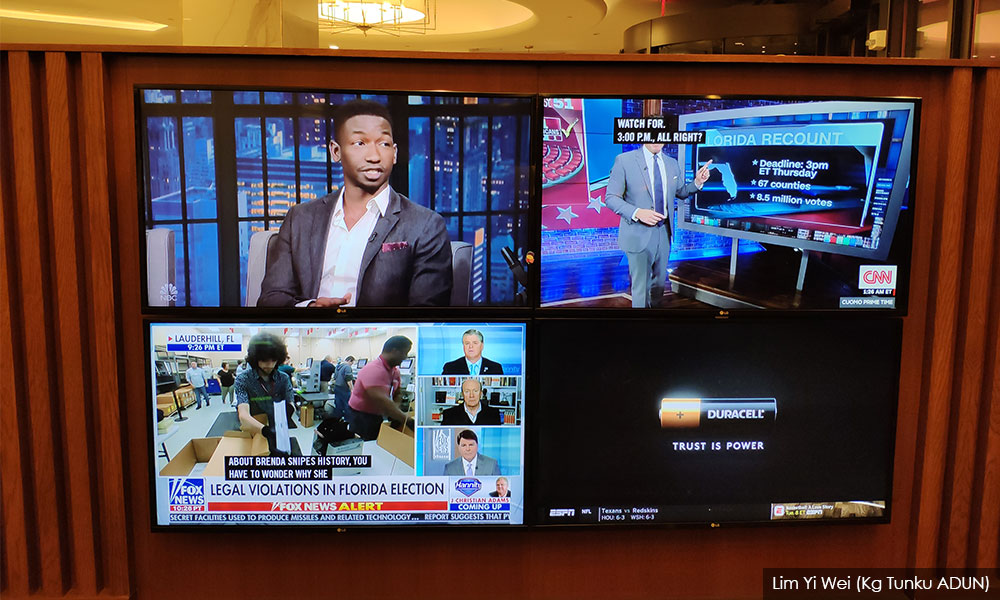
During childhood, our understanding of politics is fed to us by our parents. In the age of social media, our understanding of politics is fed by news outlets, influencers and viral sites that we trust based on family and friends’ recommendations.
If we truly want to increase youth political participation after lowering the voting age, we need to teach media literacy.
Media literacy enables us to access, analyse and evaluate written and digital media, and maintain a healthy scepticism of sources, even if they are government sources.
It is worth recalling that Sebenarnya.my, a portal launched by the Malaysian Communications and Multimedia Commission (MCMC) in 2017 to combat fake news, had no mention of 1MDB up to GE14.
Growing youth participation in society
The second question is how are we building our youths to participate in public life, beyond turning up to vote?
After GE14, many young activists and student leaders were recruited to help the new government. This leaves a gap within the 18-to-25 age group, although the recent UM campus elections, which was run independently by students themselves for the first time, gives hope.
The Youth and Sports Ministry recently announced an RM70 million budget for the Malaysian Future Leaders School (MFLS), through which successfully-screened participants will participate in mentor-mentee sessions with cabinet ministers, among others.
Post-GE14, many of my peers have asked me, “What can we do for our country?”
My message these days is: get involved in your local community.
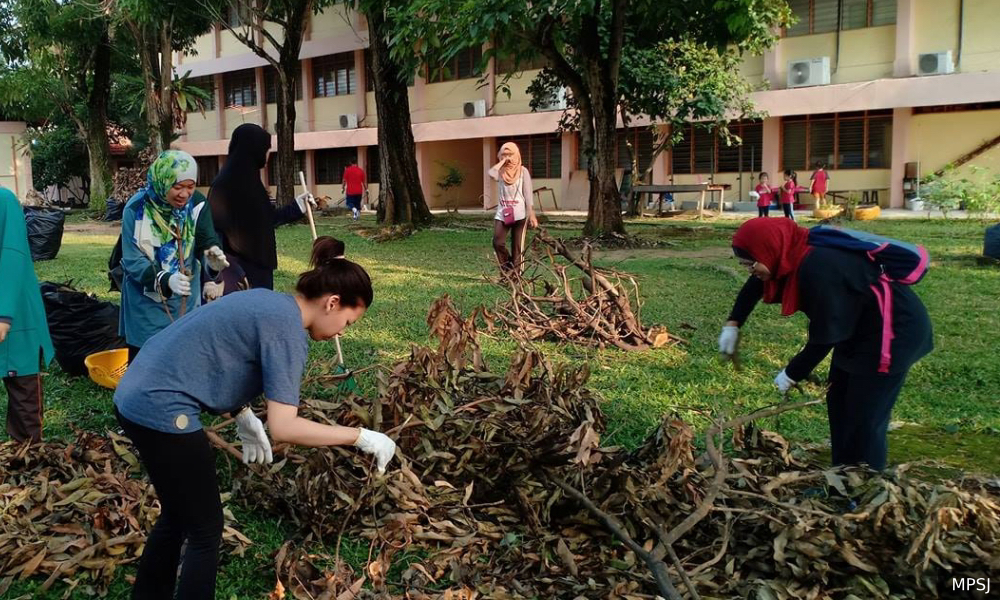
In many residents associations (RAs) and Rukun Tetanggas (RTs), senior citizens are the ones who serve faithfully as committee members, tending to neighbourhood issues and organising community get-togethers.
One might argue, the seniors have retired and have time on their hands. However, youth involvement at the local level is crucial for building future capacity.
Previously as an MBPJ councillor, I said to residents, I hope that they will field a fellow resident to run when local government elections arrive.
If the youth don’t begin now, then when? Not every youth will be a Syed Saddiq or Yeo Bee Yin. But there are many levels to contribute, with much work to be done.
Even as our cabinet and other national leaders work to rebuild the nation, we need youth to participate and strengthen civic life from the bottom-up.
If we work in tandem, we will be well-prepared with future leaders when local government elections and GE15 arrive.
LIM YI WEI is the Kampung Tunku assemblyperson.
The views expressed here are those of the author/contributor and do not necessarily represent the views of Malaysiakini.
RM12.50 / month
- Unlimited access to award-winning journalism
- Comment and share your opinions on all our articles
- Gift interesting stories to your friends
- Tax deductable
